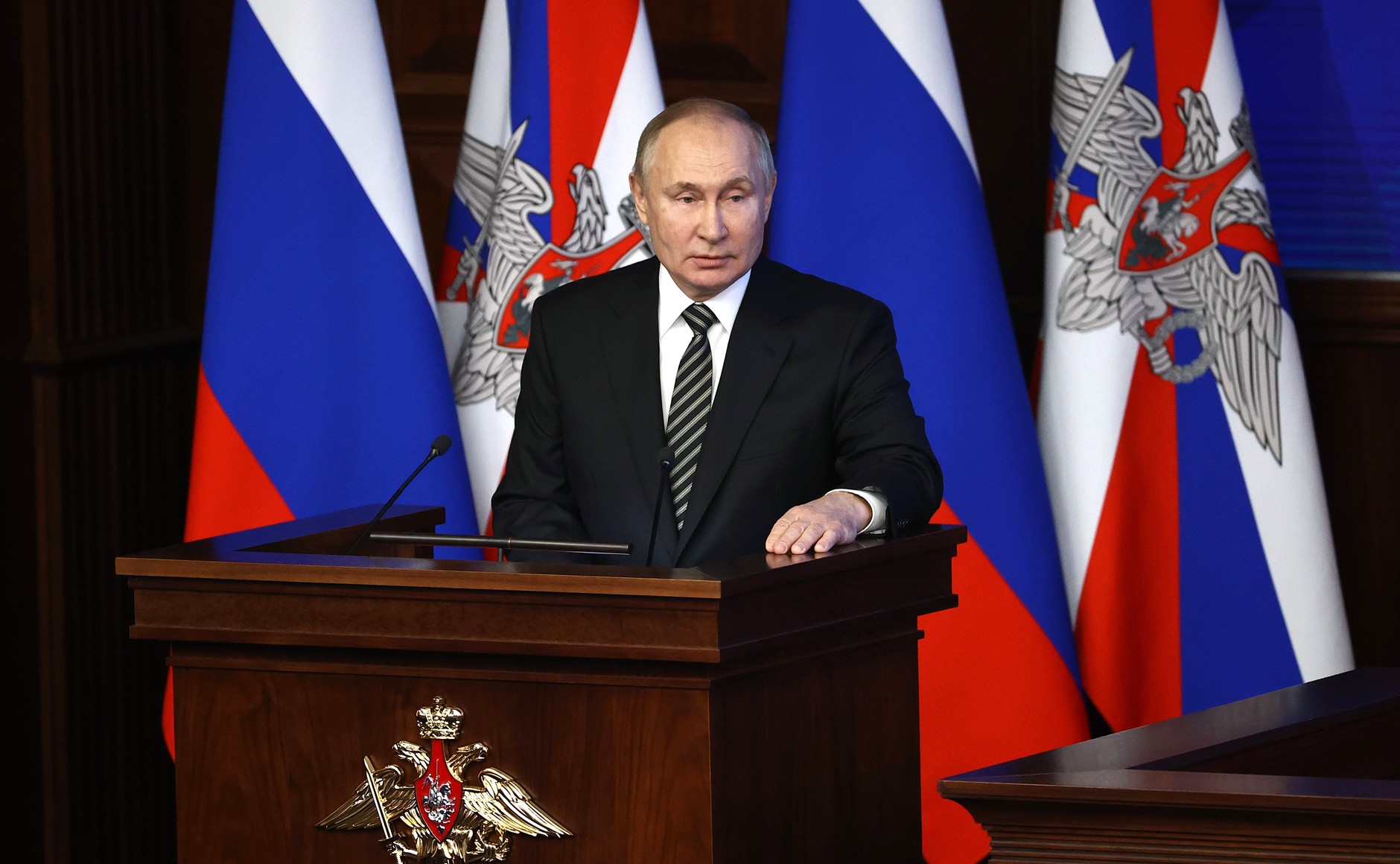Expanded Meeting of the Defence Ministry Board
Vladimir Putin took part in the annual expanded meeting of the Defence Ministry Board at the National Defence Control Centre.


Apart from the Armed Forces leadership, representatives of bodies of state power and public organisations, the meeting was attended by command officials from military districts, fleets and flotillas, military formations and units, as well as cadets and students of the Russian Defence Ministry’s higher education institutions, who have been invited to attend for the first time.
Following the meeting, the President toured a theme exhibition dedicated to the Defence Ministry Board’s final meeting in 2021. Accompanied by Defence Minister Sergei Shoigu, the President inspected promising samples of weapons and logistical support of the Russian army – advanced models of armaments, equipment, communications, intelligence and control.
President of Russia Vladimir Putin: Good afternoon, comrade officers,
Next year, we will have to focus on the following main tasks.
Thank you very much. Happy New Year!
http://en.kremlin.ru/events/president/news/67402




Geen opmerkingen:
Een reactie posten